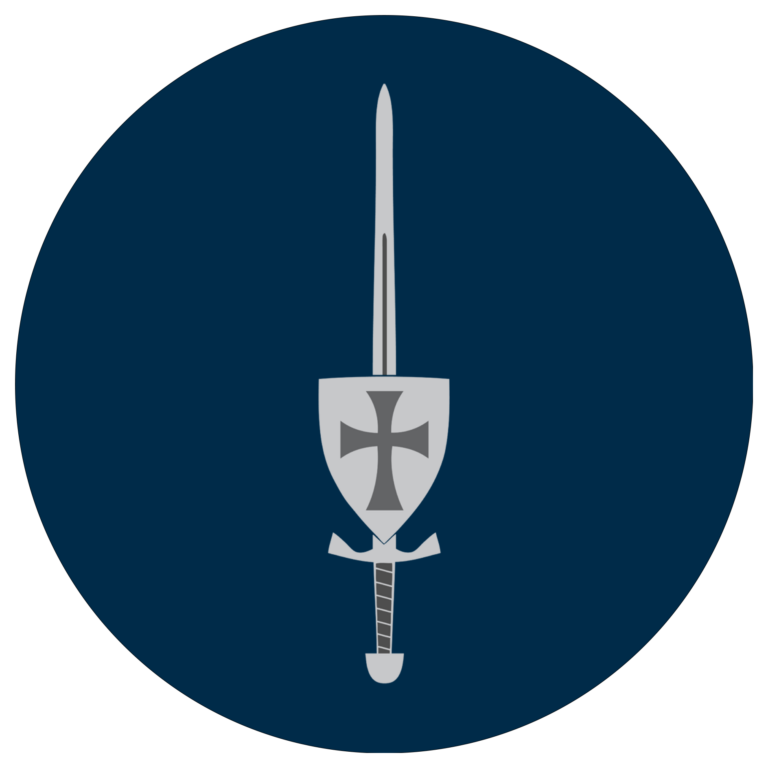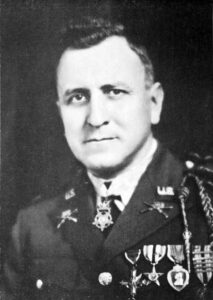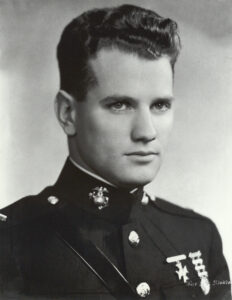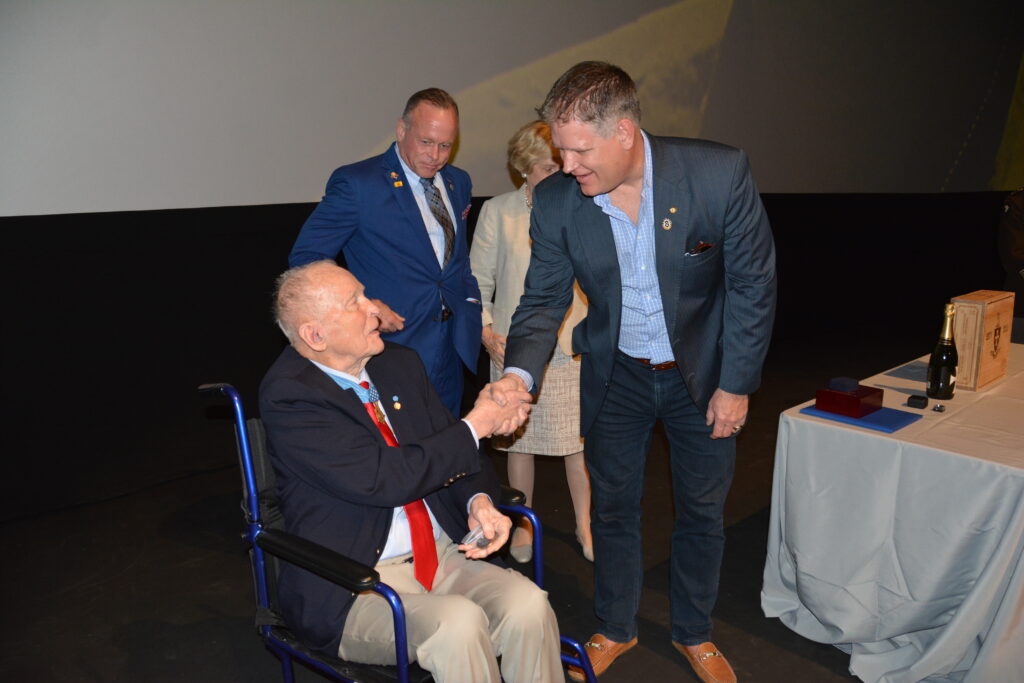
Our Stories
Features
Medal of Honor - Sigma Chi Recipients
The Congressional Medal of Honor is the highest award for valor bestowed upon an individual serving in the Armed Services of the United States.
Since the medal’s inception on December 21, 1861, six members of ourFraternity are known to have received this honor including 2022 Significant Sig Col. Ralph Puckett Jr., GEORGIA TECH 1946.
Click Here to learn about Col. Puckett.
Here are the stories of the five other Sigma Chis whose heroism and personal sacrifice exemplified a deep love of country, further inspiring generations of Americans.

Within a few yards of enemy lines, while under enemy fire Kilbourne climbed a telegraph pole in full view of the enemy to repair a broken telegraph wire. His actions succeeded in reestablishing telegraphic communication to the front.
Lt. Kilbourne received the award on May 6, 1905 for “distinguished gallantry inaction” during the Philippines Insurrection at Paco Bridge on the PhilippineIslands on February 5, 1899.
After a distinguished career, Kilbourne retired from military service in 1936 to become the head of the Virginia Military Institute. He was also known as the author of a very successful series of children’s books. He entered the ChapterEternal on November 12, 1963.
 Under heavy enfilade fire from enemy machine guns, Parker, ordered his depleted platoon to follow him in an attack upon the strong point in order to close a gap in Allied lines. The company followed Parker to the crest of the hill and took the quarry by storm capturing 6 machine guns and about 40 prisoners. The next day the assault on enemy positions continued andParker received a wound in the foot, but refused to be evacuated until his unit’s objective was achieved. Despite his wound, and at times crawling on his hands and knees, Parker led his battalion through heavy enfilade fire and succeeded in finally closing the gap in the lines. He remained in command of his battalion until they consolidate the newly established line.
Under heavy enfilade fire from enemy machine guns, Parker, ordered his depleted platoon to follow him in an attack upon the strong point in order to close a gap in Allied lines. The company followed Parker to the crest of the hill and took the quarry by storm capturing 6 machine guns and about 40 prisoners. The next day the assault on enemy positions continued andParker received a wound in the foot, but refused to be evacuated until his unit’s objective was achieved. Despite his wound, and at times crawling on his hands and knees, Parker led his battalion through heavy enfilade fire and succeeded in finally closing the gap in the lines. He remained in command of his battalion until they consolidate the newly established line.
Lt. Parker received the medal on December 31, 1937 for “conspicuous gallantry and intrepidity above and beyond the call of duty” during World War I near Soissons, France July 18 and 19, 1918.
Parker returned to active duty in World War II, but spent the rest of his life in the textile industry. He entered the Chapter Eternal on December 1, 1976.

While in command of the 6th Defense Battalion, Fleet Marine Force, U.S. Marine Corps, Cannon was wounded by enemy shellfire. He refused to be evacuated until the last of his men who had also received wounds during the bombing were evacuated, and directed the reorganization of his command post until forcibly removed. As a result of his utter disregard of his own condition he died from loss of blood.
Lt. Cannon, received the medal posthumously for “for distinguished conduct in the line of his profession, extraordinary courage and disregard of his own condition” during the Japanese bombing of Sand Island in the Midway Islands on December 7, 1941.
 Under heavy enemy fire, Britt, and a handful of his men repelled a counterattack by dozens of German infantry. During the intense fire fight, Britt received grenade wounds to his side; chest, face and hands. Despite his wounds, he refused to accept medical attention until ordered to do so by his battalion commander after the battle. His bold, aggressive leadership, utterly disregarding superior enemy numbers, resulted in capture of several enemy soldiers, and enabled a number of captured Americans to escape.
Under heavy enemy fire, Britt, and a handful of his men repelled a counterattack by dozens of German infantry. During the intense fire fight, Britt received grenade wounds to his side; chest, face and hands. Despite his wounds, he refused to accept medical attention until ordered to do so by his battalion commander after the battle. His bold, aggressive leadership, utterly disregarding superior enemy numbers, resulted in capture of several enemy soldiers, and enabled a number of captured Americans to escape.
Captain Britt received the medal on March 24, 1944 or “conspicuous gallantry and intrepidity at the risk of his life above and beyond the call of duty” duringWorld War II north of Mignato, Italy on November 10, 1943.
Britt, who played one season of pro football with the Detroit Lions prior to WorldWar II, went on to participate in the invasion of Africa, Sicily and Anzio Beach where he lost an arm and a foot. He also received the Distinguished ServiceCross, Silver and Bronze stars and a purple heart. He served as the 11th Lieutenant Governor of Arkansas and entered Chapter Eternal on November 26,1995.
 While serving as a radio operator-air gunner on a mission over Bremen, Germany, Vosler’s aircraft was severely damaged by anti-aircraft fire. Crippled, and forced out of formation, they immediately came under fire from enemy aircraft. During the attack, Vosler suffered severe wounds in the legs, thighs, chest, face, and both eyes.Enemy fire also severely wounded the tail gunner, rendering him unconscious. Declining to take first aid treatment, Vosler defended the tail of the aircraft by maintaining a steady stream of deadly fire despite the limitations of his impaired vision. Ultimately, the pilot had to ditch the aircraft and Vosler’s last act before exiting was to repair a damaged radio and send a distress signal working entirely by touch. Lapsing into unconsciousness several times, Vosler was able to drag himself onto the wing of the ditched aircraft and kept the wounded tail gunner afloat until other crew members could rescue them.
While serving as a radio operator-air gunner on a mission over Bremen, Germany, Vosler’s aircraft was severely damaged by anti-aircraft fire. Crippled, and forced out of formation, they immediately came under fire from enemy aircraft. During the attack, Vosler suffered severe wounds in the legs, thighs, chest, face, and both eyes.Enemy fire also severely wounded the tail gunner, rendering him unconscious. Declining to take first aid treatment, Vosler defended the tail of the aircraft by maintaining a steady stream of deadly fire despite the limitations of his impaired vision. Ultimately, the pilot had to ditch the aircraft and Vosler’s last act before exiting was to repair a damaged radio and send a distress signal working entirely by touch. Lapsing into unconsciousness several times, Vosler was able to drag himself onto the wing of the ditched aircraft and kept the wounded tail gunner afloat until other crew members could rescue them.
Sgt. Vosler received the medal on September 6, 1944 for “conspicuous gallantry in action against the enemy above and beyond the call of duty” during World War II over Bremen, Germany on December 20, 1943.
Following the war, Vosler served his fellow soldiers as a member of the United States Veterans Administration and entered Chapter Eternal on February 17, 1992.
Significant Sigs
Military Award Recipients
